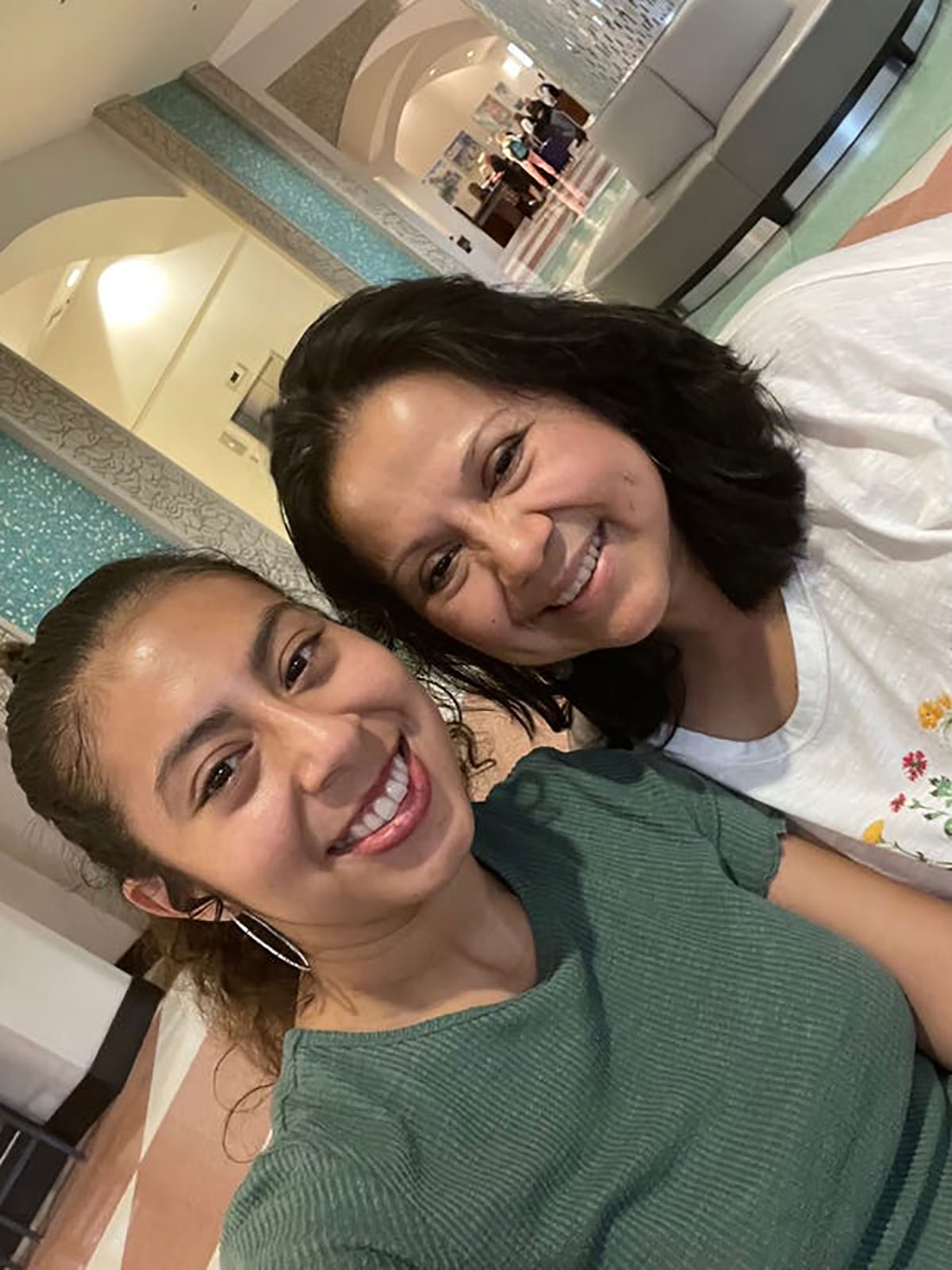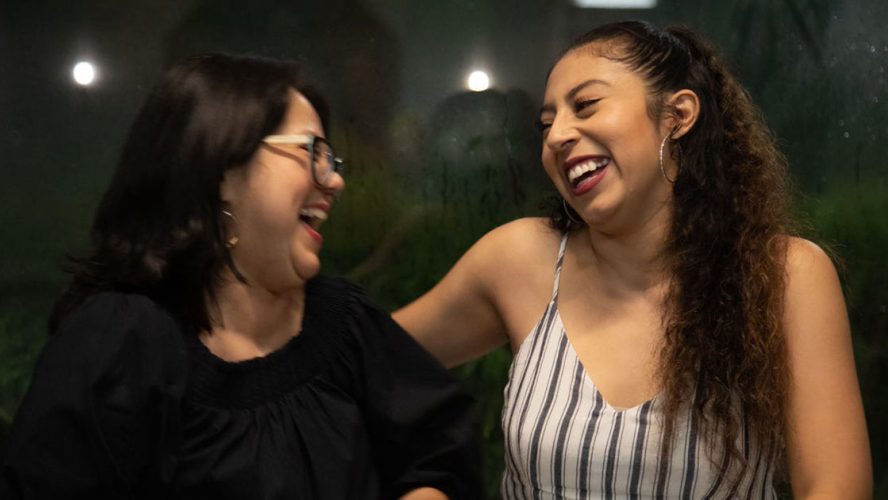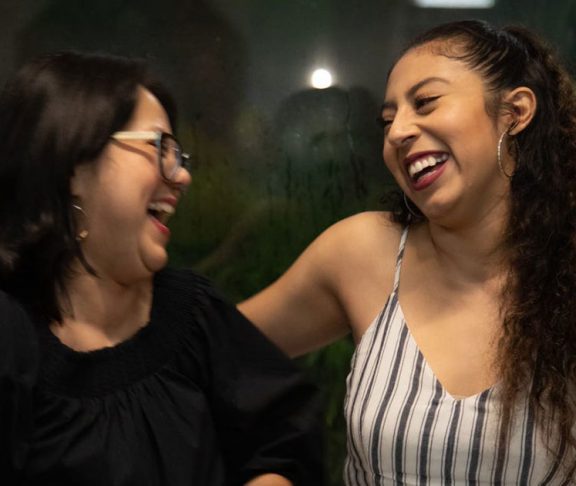When Keila Torres needed and received a marrow transplant, she got more than marrow – she got a friend for life.
The now 44-year-old married mother of two boys, ages 7 and 11, was diagnosed in 2015 with breast cancer after finding a lump in her left breast. After many treatments, chemotherapy and radiation, she was cancer-free.
But six months later, routine blood work showed something was wrong. A bone-marrow biopsy showed she had Acute Myeloid Leukemia (AML), a blood and bone marrow cancer. Her previous chemotherapy or radiation may have increased her risk of developing AML.
“The treatment for leukemia shook me to my core,” says Torres. “I was very scared because there were moments when I felt like I was going to die.”
Doctors told her she needed a marrow transplant—also known as a blood stem cell transplant. Her brother wasn’t a match. Right away, she was connected with Be The Match® who has managed the most diverse marrow registry in the world for the past 30 years. The organization connects patients and donor matches for a life-saving marrow and umbilical cord blood transplants.
Looking for a match
Torres, who moved to the Boston area when she was 10, was born in Guatemala. According to Be The Match, Hispanics have a 48% chance of finding a matching donor. Matching is based on genetic markers called human leukocyte antigen (HLA). Because genetic markers used in matching are inherited, donors are most likely to match someone who shares the same ethnic background. Torres’ ideal donor would most likely be Hispanic.
Torres had three potential matches on the Be The Match Registry®. One of those potential donors was Odalis Trinidad, who was a 10 out of 10 match, making her an ideal donor for Torres. The women’s ethnic backgrounds are similar. Trinidad’s mother is from Guatemala and her father is from El Salvador.
Trinidad, who’s 24 now and lives in Palm Desert, California, signed up for the Be The Match Registry in high school and donated blood stem cells without hesitation to Torres at 19.
“I was really healthy, not too worried about a surgery or anything because it was going to benefit someone else,” says Trinidad who now has a five-month-old baby. “That’s what kept me going: Knowing that, I was selflessly doing this to help someone.”
The procedure lasted an hour and a half and Trinidad stayed at the hospital one night and had a little lower back discomfort for about a week.
“I just wanted her to have that opportunity to continue her life and all I had to do was have a sore back for a week, I would do it again,” she says.
Trinidad’s family was proud of her for donating to a fellow Hispanic, especially someone with shared Guatemalan roots.
Torres received her transplant three months after her diagnosis. She says it was like getting a blood infusion. It only took three hours and wasn’t painful.

She was doing well but relapsed after her one year checkup. She needed and received a second transplant.
She appreciates the second transplant but still credits Trinidad with saving her life and giving her more time to watch her kids grow.
Discover other ways to support our life-saving mission.
“There are no words besides ‘Thank you,’” says Torres. “Because what she did for me saved my life. I think if it hadn’t been for her, I probably wouldn’t be here.”
Trinidad, who was honored to donate, was extra happy when she found out that Torres had kids.
“I’m so glad that she has more time with her sons and she’s definitely seeing them grow up and she was there for that time when they were small,” she says. “It’s really important.”
These days Torres is in complete remission and is coming up on her third year anniversary of being cancer-free.
Thank you
At the time Torres received Trinidad’s blood stem cells , neither woman knew much about each other, except that Torres was in her 40’s, had AML and needed a transplant; and that the donor was a young female.
Per the registry rules, donors and recipients have to wait a year after transplant before having direct contact. That time couldn’t come fast enough for Torres who was excited to meet her donor.
She says it was the most amazing experience to connect with Trinidad. They started texting, talking on the phone and connected on Facebook.
Then they met in June 2021 in Florida at the HOSA international leadership conference for future health professionals in hopes of showing students how the work they do impacts real people.
“I felt like I already knew her but meeting her in person was amazing,” says Torres. “I was so happy to meet her in person, to actually hug her, to actually say thank you.
“I always tell her, ‘there’s no way that I’m ever going to be able to repay you back for what you gave me. Because there’s no price. To me, it’s priceless.’”
If you’re identified as a potential match, you could be the only option for a searching patient.
Registering Hispanic donors
Be the Match wants everyone – including Hispanics and Latinos – to have a match on the registry if they need one.
“I’m very grateful that Odalis wants to do this and to advocate for a lot more Hispanics to register to become donors because of the impact that they could have on someone’s life,” says Torres, who received financial assistance from Be The Match when she could not work.
Trinidad, who’s still on the registry and is eligible to donate, encourages other Hispanics to sign up for the registry as well.
“I would tell everyone to do it,” she says. “Our background and our Latino history has different connections that can connect to someone in a different part of the world.”
When more Hispanic donors register, more Hispanic lives can be saved. Registering to be a donor is as easy as doing a cheek swab.
Both women encourage fellow Hispanics to show their cultural pride and join the Be The Match Registry®: join.bethematch.org



